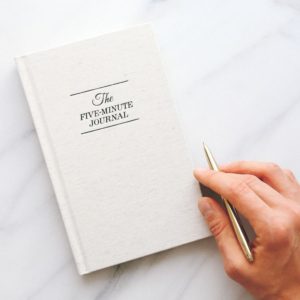Just as exercise and eating healthy are imperative to a healthy routine and lifestyle, so are good sleeping habits. Studies suggest that adults should aim to get a minimum of 7 hours of sleep each night. A good night of sleep can help boost your immune system, strengthen your heart, prevent weight gain, increase productivity, improve memory; the benefits are endless.
That said, falling asleep at the end of the day can often be easier said than done. Do you ever find yourself lying in bed at night and going through the list of things you need to tackle the next day? Or has a stressful day carried into the night and left your head spinning with worry when you want to be sleeping?
Difficulty sleeping is extremely common. Fortunately, spending a little time curating a bedtime routine can significantly impact. Here are a few tips to consider when planning out a new routine:
Stretch Before You Settle Into Bed

Stretching is often associated with exercising, such as stretching before or after a workout to increase blood flow to muscles and prevent injuries.
Interestingly, stretching can also help reduce stress on the body by relieving any unnecessary tension. Many people unconsciously hold stress in their back or neck throughout the day. Alleviating that stress allows the body to relax and better prepare for a good night of sleep.
There are two types of stretching: dynamic and static. Dynamic stretches are those you might use to warm up for a workout, typically based on movement. On the other hand, static stretches involve holding a sustained position to improve flexibility range of motion and reduce pain and stiffness. Set aside about 10 minutes in the evening to try out these ten beneficial stretches to improve your sleep quality and duration.
In an attempt to further improve your sleep, scheduling a massage, whether it be once a month or every few months, can dramatically impact the body’s reaction to holding stress. A good deep tissue massage can help to lower cortisol levels and increase oxytocin levels. In other words, a massage can help significantly reduce stress levels while also easing physical symptoms such as tight muscles and tension headaches.
Turn Off Your Digital Devices

A recent study suggested that a shocking 66% of Americans admit to using their phone before trying to fall asleep. The appeal of mindless scrolling at the end of a busy day can be tempting, but it could also be the culprit why you’re not getting a night of better sleep.
Most digital devices emit blue light, the highest energy wavelength in the light spectrum. This light casts a glare that impacts not only your vision but your ability to fall asleep at night.
Circadian rhythms are the 24-hour cycles in our body, sometimes referred to as the body’s internal clock, and work to ensure the body’s processes are optimized at specific hours of the day. The circadian rhythm is highly sensitive to light, so when the sun rises and the body is exposed to light, it is signaled to generate cortisol and increase alertness.
At night, when the body is preparing to go to sleep, the dark signals that it’s time to produce melatonin, a sleep hormone, and wind down. With that in mind, you can probably imagine how looking at a digital device, such as your phone, can impact your sleep quality. The blue light emitted from the screen signifies to the body that it’s not quite time to prepare for rest.
Ideally, turning off your phone an hour before you plan to sleep or leaving it in a different room is the best option to avoid harmful blue light effects. However, if this is not feasible or you’re not quite ready to quit the habit of scrolling before bed, buying a pair of blue light glasses might be a good option for you.
Blue light glasses are an efficient and effective way to block harmful rays from entering your eyes. It can also improve your sleep quality as your circadian rhythm is protected, which is essential in more ways than one.
Clear Your Headspace
 Sometimes the reason for lack of sleep is the never-ending thoughts you’re e having late into the night. It can be difficult, especially for adults, to shut off the brain and focus on relaxing. You might feel exhausted and ready for bed, but your mind is racing about work deadlines, family obligations, long to-do lists, etc.
Sometimes the reason for lack of sleep is the never-ending thoughts you’re e having late into the night. It can be difficult, especially for adults, to shut off the brain and focus on relaxing. You might feel exhausted and ready for bed, but your mind is racing about work deadlines, family obligations, long to-do lists, etc.
A 2018 study examined whether or not bedtime writing affected difficulty falling asleep. A group of 57 adults was given the assignment to complete for 5 minutes before sleeping.
Random participants were told to write about tasks they needed to remember to complete within the next few days (a to-do list), while others wrote about tasks they had already finished (a completed list). The data showed that adults who wrote their to-do lists fell asleep faster.
This study conveys the importance of clearing your headspace before you try and fall asleep. If you find your brain overrun with thoughts at night, purchasing a productivity planner might be a good idea.
Conclusion
This will give you a clean space to take 5 minutes each night to transfer all the information from your mind to a piece of paper, and it will take the added stress away of trying to remember everything the following day when you wake up. You might even write down a gratitude list each night, giving yourself an even more positive headspace to help you drift off to sleep.
A bedtime routine doesn’t have to mean preparing for sleep a few hours before bed. Simply setting aside 30 minutes to wind down for the day is all you need. Consistency in the routine is more beneficial and essential than duration. A healthy bedtime routine can help train your body to get a better night of sleep and increase your productivity and energy level for the upcoming day.

